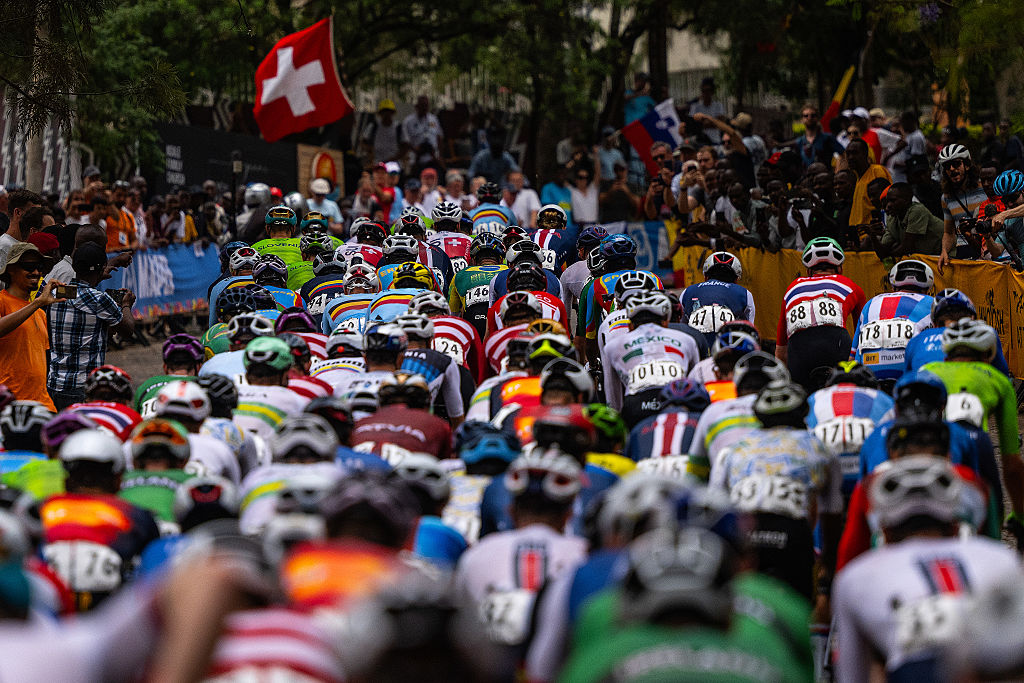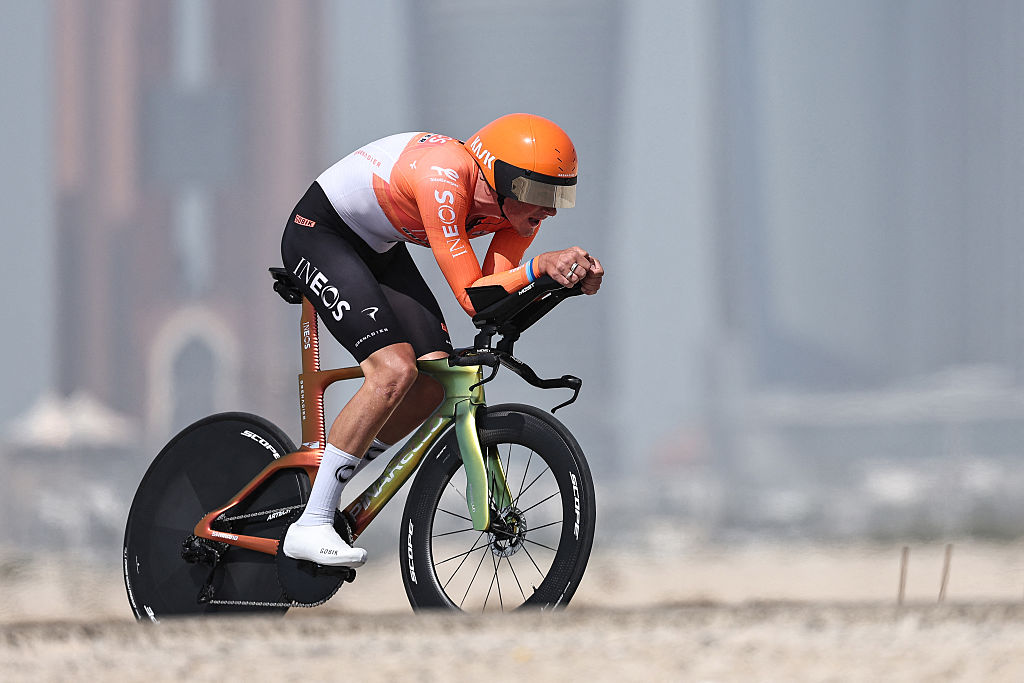'Toughest ever Road World Championships course' sees lowest total of elite men finishers in 30 years
Last rider across the line in 30th more than 12 minutes down on winner Tadej Pogačar

The latest race content, interviews, features, reviews and expert buying guides, direct to your inbox!
You are now subscribed
Your newsletter sign-up was successful
Widespread descriptions of Kigali's Road World Championships course as the 'hardest ever' were seemingly confirmed by the results sheet for the elite men on Sunday, as just 30 riders completed the course, the lowest total since 1995.
The last time so few riders were able to finish an elite men's road race was in Duitama, Colombia, in 1995, when just 20 riders crossed the final line, with Spain's Abraham Olano overcoming a late puncture to somehow stay upright in the closing kilometres and take the victory.
Prior to that, the lowest total came in one of the hardest-fought World Championships in history in 1980 in Sallanches, when Bernard Hinault's triumph on a very hilly Alpine circuit saw just 14 riders finish.
Finishing totals for the elite men's race have been lower than 30 on various occasions since the Worlds began in 1928. But Kigali remains one of just four elite men's with such a low finishing total when the starting field has been more than 100, a total only first reached in the Worlds in 1978.
Reasons given for Kigali's intrinsic difficulty have varied, and the debate is not one that can be easily settled. But its relatively high altitude of 1,560 metres above sea level - although Colombia in 1995 was even higher, being held at 2,500 metres above sea level - and a high number of climbing metres were likely important.
Kigali's total of 5,475 metres of vertical gain and 33 climbs has only been surpassed in the Worlds by the all-time record of 5,844 metres of vertical climbing in Nurburgring, Germany in 1966, and it is slightly higher than Duitama (5,460 metres), too.
Only nine Worlds circuits have ever had more than 5,000 metres of vertical gain, according to L'Équipe: Apart from Duitama, Nurburgring and Kigali, there's also: Chambéry, France (5,439 metres, 1989); Solingen, Germany (5,280m, 1954); Montréal, Canada (5,187m, 1974); Lugano, Switzerland, (5,145m, 1996); Utsunomiya, Japan (5,130m, 1991) and Benidorm, Spain (5,112m, 1992).
The cliché that 'it's the riders, not the course, that makes it hard can't be forgotten either, and another factor that could have been important was the high speed throughout the race. The opening early break of seven gained a scant three minutes at most before the chase behind in earnest, far less than usual and contributing to the high average.
Then, after Tadej Pogačar first attacked so far from the finish, 107 kilometres out, there was no let-up all the way to the line, with an average speed for the race of 42.089 kmh. That's not much less than last year's average of 42.41kmh, when there were over 1,000 metres less of vertical climbing.
The latest race content, interviews, features, reviews and expert buying guides, direct to your inbox!
In Kigali, the time gaps were also notably large, too, arguably reflecting the toughness of the race.
Race winner Pogačar was 1:35 ahead of second-placed Remco Evenepoel, nearly three times his 34-second margin on runner-up Ben O'Connor in Zurich 12 months ago, and there was a gap of 12 minutes and four seconds between Pogačar and the last rider across the line, Amanuel Ghebreigzabhier of Eritrea, too. In 2024, nearly seventy riders finished at 12:09 or less on the Slovenian champion.
Subscribe to Cyclingnews to unlock unlimited access to our coverage of the first-ever UCI Road World Championships on African soil. Our team of journalists will bring you all the major storylines, in-depth analysis, and more directly from the action in Rwanda as the next rainbow jerseys are decided. Find out more.
Alasdair Fotheringham has been reporting on cycling since 1991. He has covered every Tour de France since 1992 bar one, as well as numerous other bike races of all shapes and sizes, ranging from the Olympic Games in 2008 to the now sadly defunct Subida a Urkiola hill climb in Spain. As well as working for Cyclingnews, he has also written for The Independent, The Guardian, ProCycling, The Express and Reuters.
You must confirm your public display name before commenting
Please logout and then login again, you will then be prompted to enter your display name.

